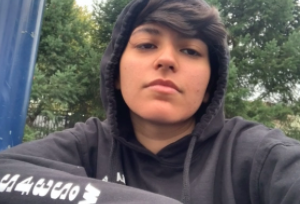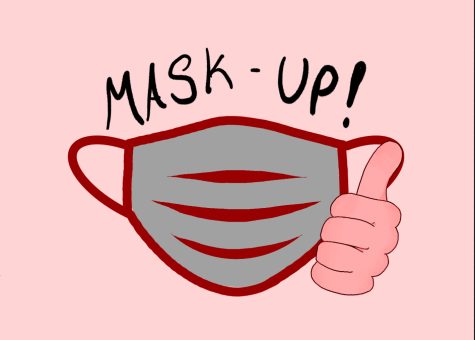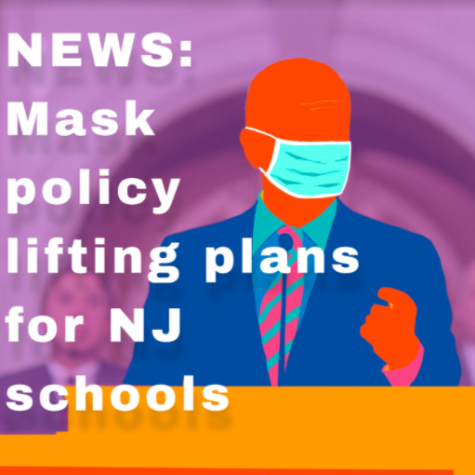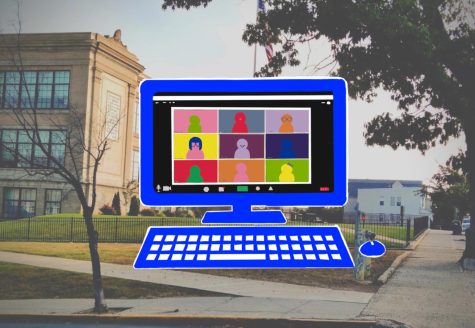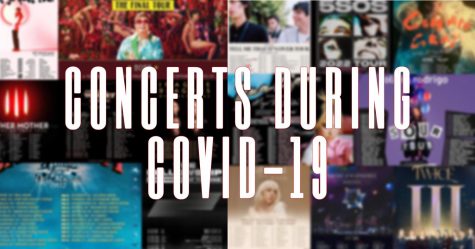Student Opinion on COVID-19 Vaccinations
April 22, 2021
Pfizer and Moderna’s COVID-19 vaccines are being distributed to candidates based on CDC guidelines for eligibility and availability. As of March, students who are not immunocompromised students still aren’t on the priority access list to be vaccinated and anyone below the age of 16 is ineligible for both vaccines. The Kearnian surveyed students to see if they’d be willing to take the vaccine once it’s made available to them; 75 responses were received.
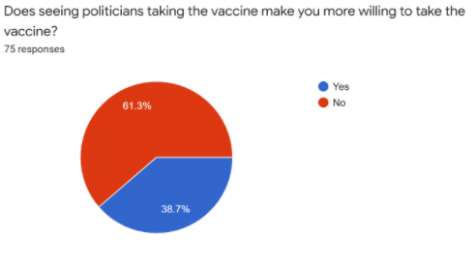
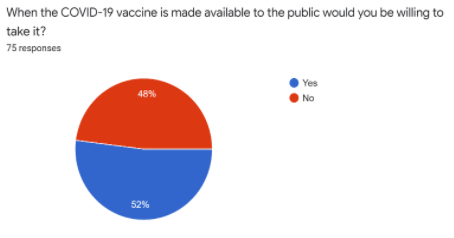
Of that 38.7% felt more comfortable with the idea of taking the vaccine after seeing politicians take it and 61.3% felt unaffected. 48% are unwilling to take the vaccine but the majority (52%) felt comfortable and willing to receive the vaccine if made available to them. Although the majority of respondents felt unaffected by politicians’ status, they were still interested in seeing them be inoculated.
Respondents answered anonymously why they’d be willing or unwilling to take the vaccine. The majority of the respondents willing to take the vaccine are doing it out of desperation for a return to their life before COVID-19:
“I want my normal life back as soon as possible”
“I want everything to be back to normal”
“just want all of this to end”
“Vaccine=In-person school”
Others feel the pros of the vaccine outweigh the cons and that it’s the same as any other vaccine:
“I rather take the shot because even if something goes wrong it won’t be as bad as getting covid”
“I already take other vaccines so why not this one? I think of it like the flu shot, it’s just something that needs to be done.”
“Science is at its prime and it obviously won’t take as much time to develop vaccines as it did when the flu was going around. We shouldn’t fear what is in the vaccine because it isn’t a cure to the corona virus, it is a precaution”
Respondents unwilling to take the vaccine mainly felt uncomfortable out of fear and distrust:
“I would feel more comfortable knowing any side effects that come from this vaccine. (Don’t want to turn into the Hulk)”
“I do not feel comfortable with taking the vaccine because I feel just right without taking something that I know could risk even more my health or could even have bad effects on my system”
“Its the first vaccine ever made!!!!!!its not going to work. Who knows if i take it, will it give me some kind of mutation? I would rather keep suffering then be given a total life changing mutation.”
“Don’t know the effects the vaccine could give since its new. It could be harmful but it also couldn’t be. Better safe than sorry.”
Others felt there isn’t enough information or that it wasn’t worth it for them:
“I would like to wait to see others take it to see their reactions and how they respond.”
“Because it is not 100% positive.”
“I don’t like shots.”
“I don’t feel like taking it. It’s not that I don’t trust it it’s just that I wouldn’t take it.”
Students’ answers reveal clear anxiety regarding both the vaccine and the virus. The lack of information makes them uneasy but it’s also hard to live in an unfamiliar environment. March 12th was the one year mark since the start of remote learning; an emotionally taxing adjustment. Students’ experiences with the virus have contributed to increased tension regarding their decisions. It’s important to know the facts and prevent one from being misguided as many youths are easily influenced by media and fear causing them to cite sci-fi horrors as their reasoning not to be inoculated. Despite students’ fear their opinions are most likely subject to change as scientists learn more about the virus and new strains since the majority of respondents cited scientific evidence or lack thereof as their reason to or not to be inoculated.
